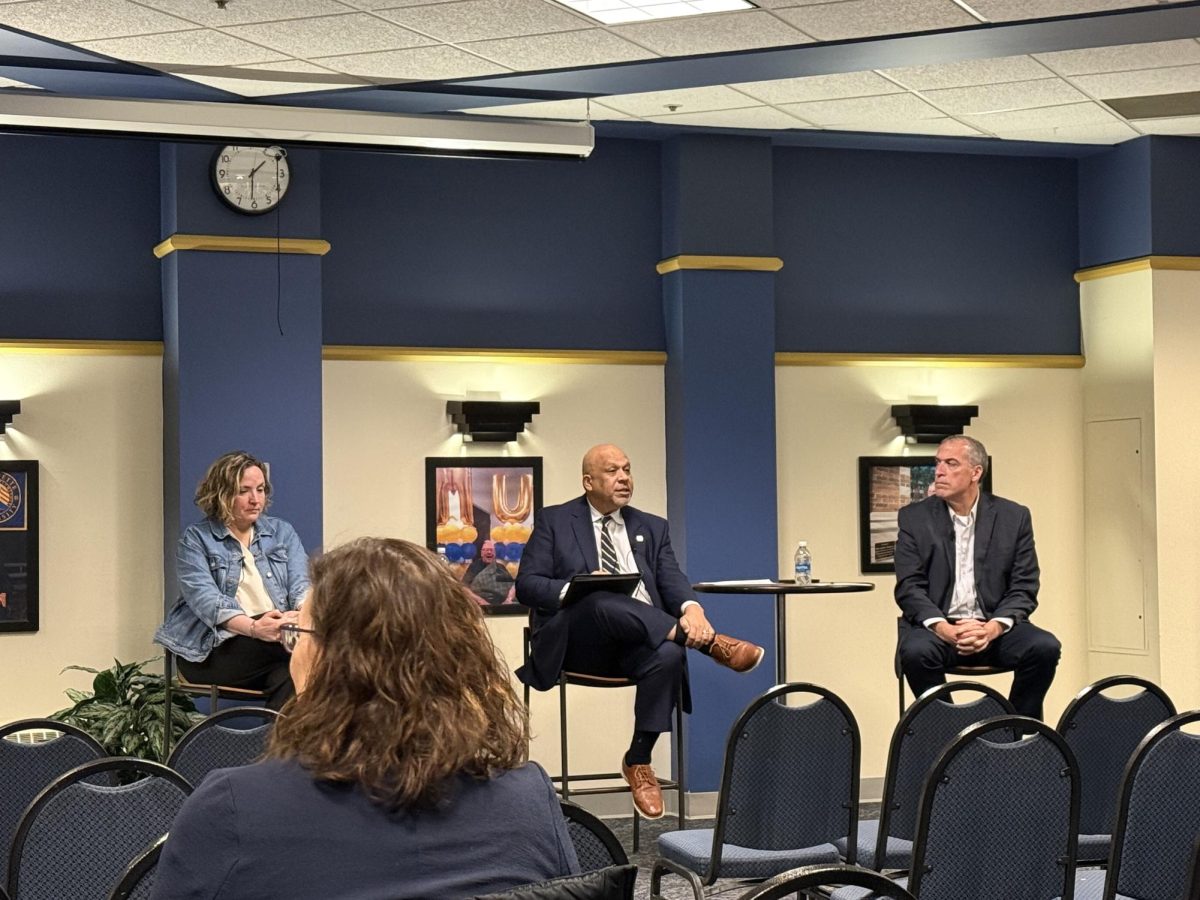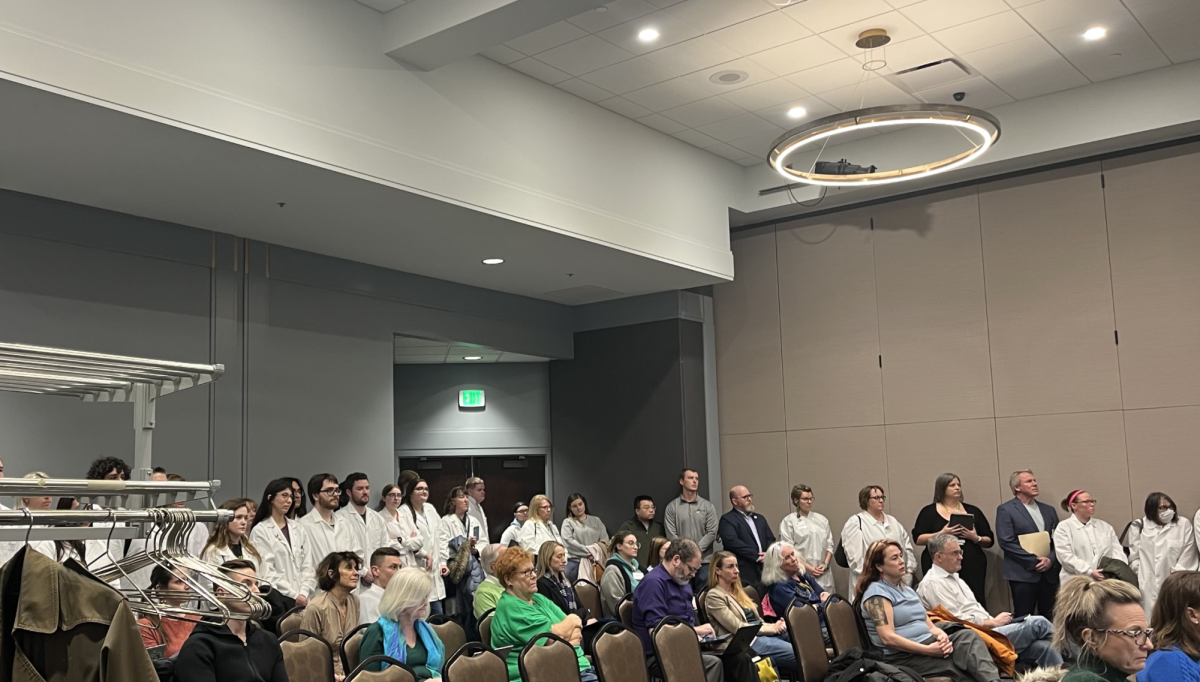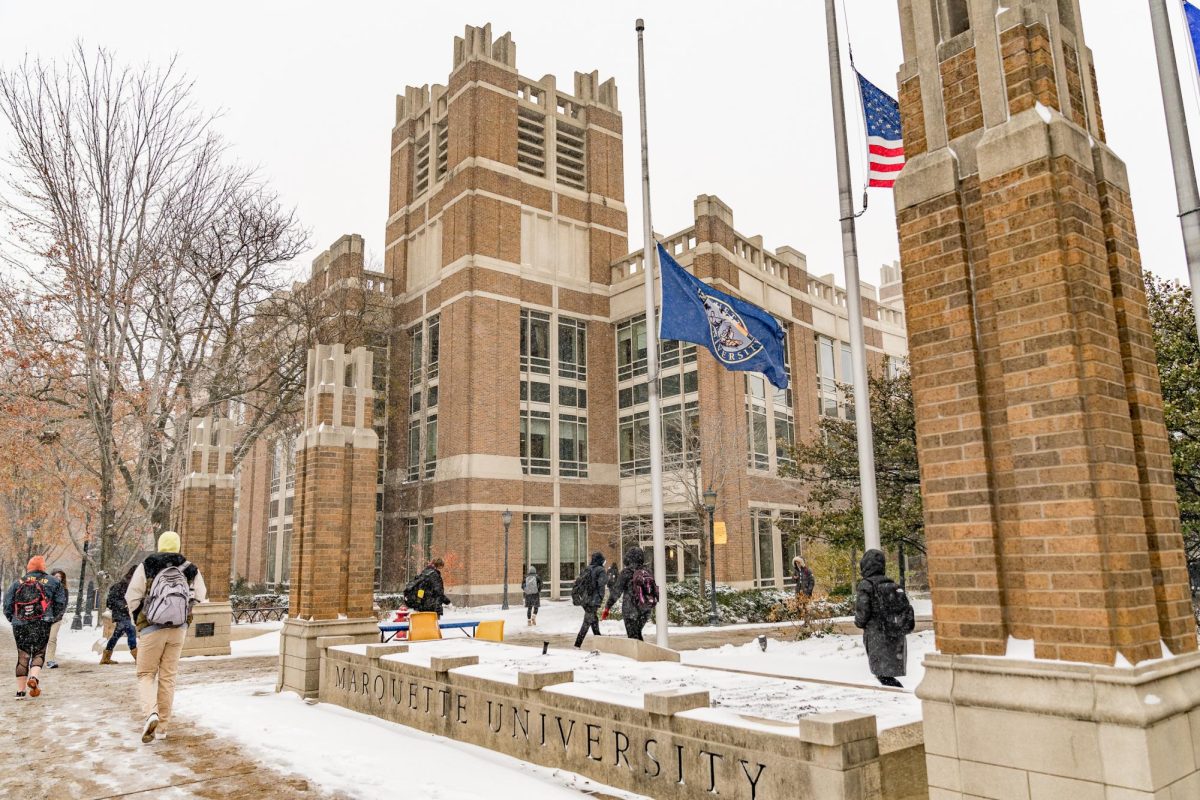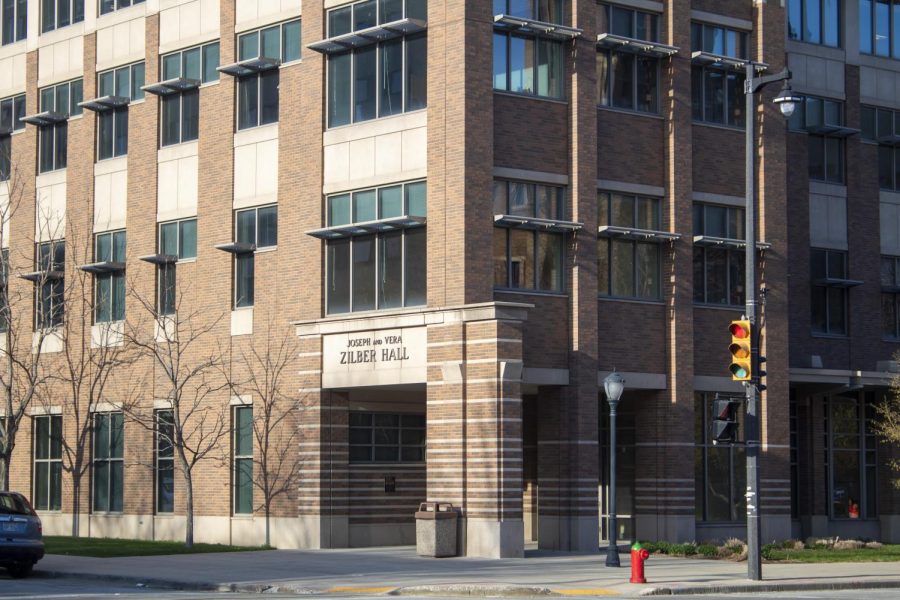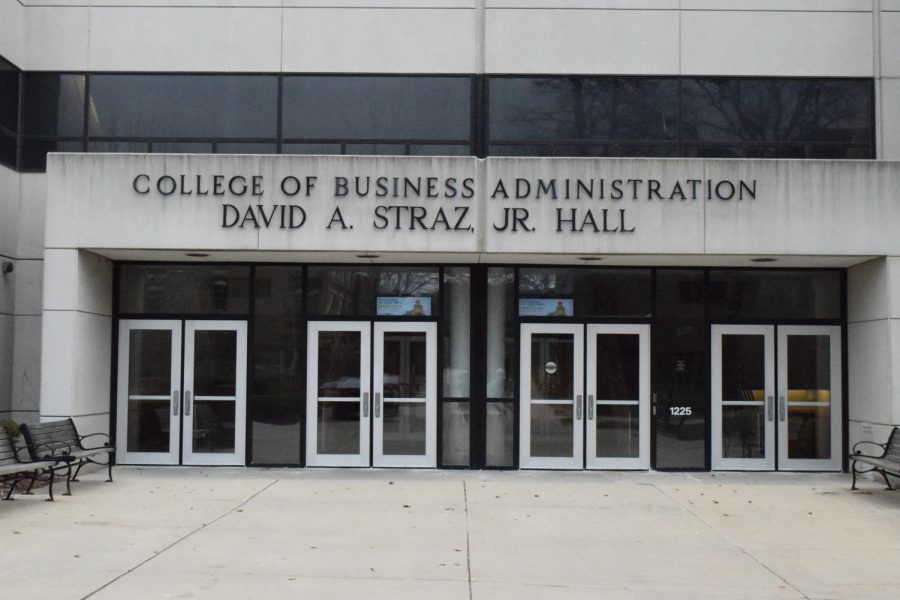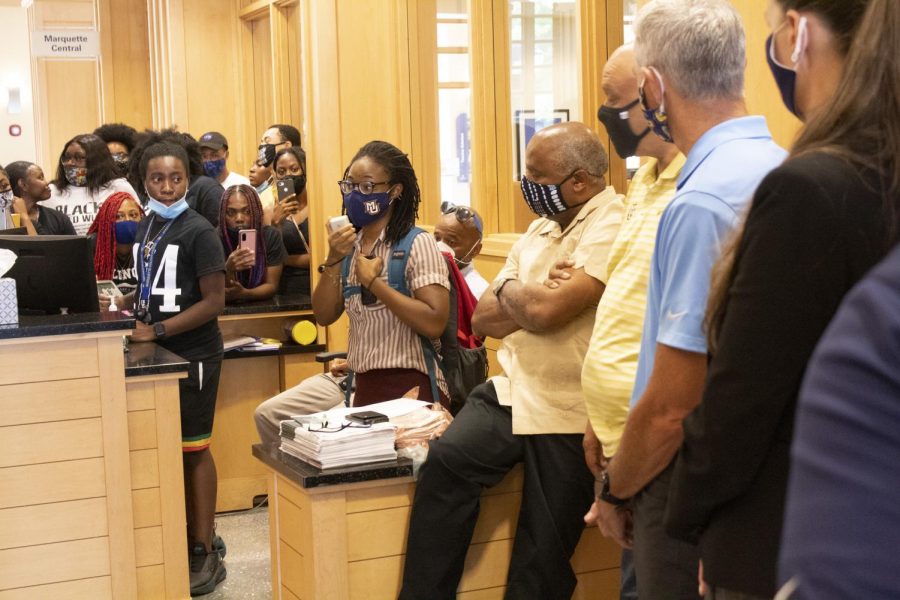Tuition will increase next year by approximately $1,400, bringing the annual total to $32,810, announced University Vice President of Finance Chuck Lamb in a presentation to the Academic Senate on Monday,
While the student activity fee will remain unchanged, room and board rates will increase 3 percent. Students will also be paying $12 more for the annual fee for Student Health Services, bringing that total to $284.
Lamb said this increase is consistent with past years’ tuition increases, and matches last year’s increase. He added that despite the tuition increases, Marquette still ranks low in terms of tuition when compared to other Jesuit institutions.
“Marquette has always been conservative with its budget,” Lamb said. “We always approach the board with a balanced budget.”
According to Christopher Stolarski, a senior communication specialist in Marquette’s Office of Marketing and Communication, despite annual cost increases, “they’ve done a really good job of keeping it at that rate (of $1,400 annually).”
Increasing costs of running the university, from maintenance and insurance costs to salary increases, contribute to Marquette’s yearly rise in tuition. Lamb said this is an unavoidable part of the University’s budget and that unexpected situations, such as the increase in the number of freshmen students this year, didn’t contribute to the need to raise tuition.
Stolarski said the new tuition rates were part of a “long and arduous budget process” undertaken by the new University Finance and Review Committee, which will replace the former University Budget Committee.
Lamb said the change made to the committee takes more of a “master planning” and holistic approach to the budget. The committee also hopes to be more open, accessible, and transparent for students.
“It’s about more than the budget — it’s about strategic planning,” Lamb said. “The process will be much more transparent — minutes will be available online and students from the graduate and undergraduate level sit on the committee.”
“There was a large, broad group of people who made these decisions,” Stolarski said.
To compensate for the tuition increases, Lamb noted that as much university revenue as possible will be given to student financial aid.
The salary pool for faculty will also increase 3 percent, bringing the total to approximately $4.8 million. Lamb said these increases will contribute to creating new, permanent positions for staff members who may have had temporary positions. A small increase will also be made to give certain professors “merit-based raises” based on discretion from college deans.
Stolarski said that while increases in student tuition and raises given to employees are decisions made independently of each other, they do affect each other when it comes to the entire annual budget.
Despite the increases, Lamb said the first priorities for the university are “student discounts and compensation for our teachers.” He added that “we would love to have a zero percent increase every year, but running the university costs money.”
Evan Umpir, a freshman in the College of Arts & Sciences, said that while he understands that costs go up every year, he wishes he could have more knowledge as to what costs contribute to tuition increases.
“The justification (for the increases) was that costs go up every year, and there is inflation,” he said. “But what is (the university) spending that tuition needs to go up every year?”


